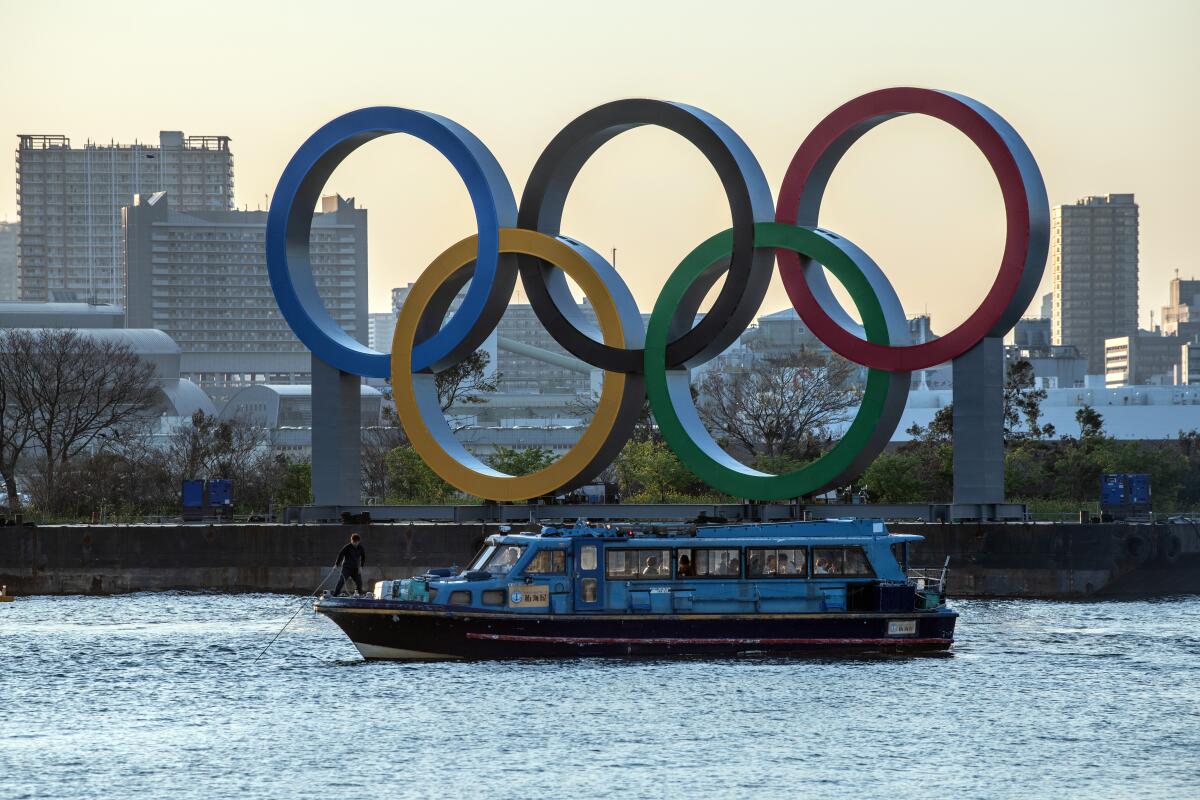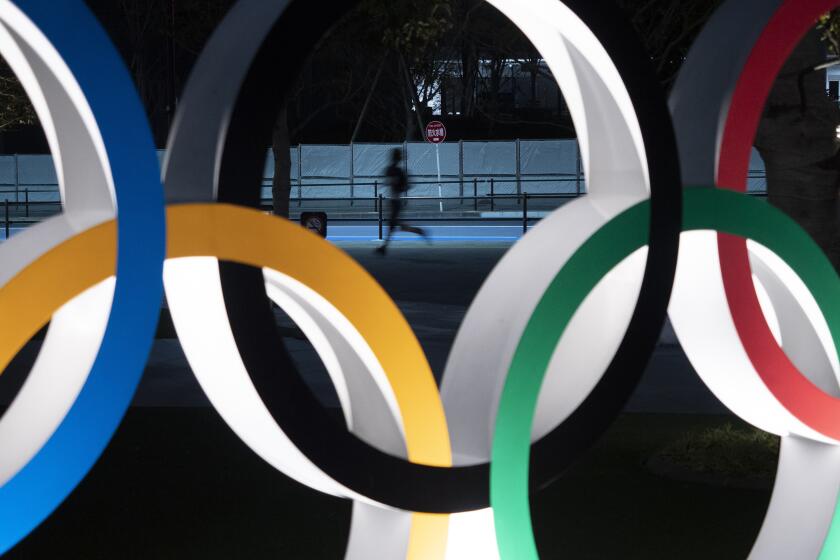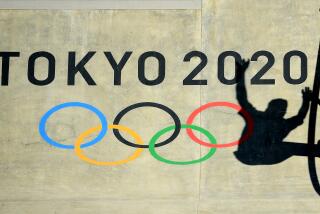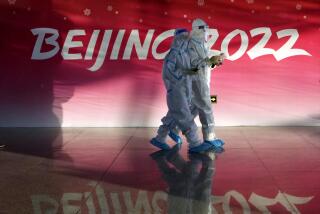Column: In interest of safety, Summer Olympics in Tokyo should be canceled

Just do it?
More like just scrap it.
As much money is at stake, as frightening as it is to resort to a measure that was last taken in World War II, the Olympics have to be canceled.
What was already obvious became even more so Wednesday when the International Olympic Committee revealed a âplaybookâ for hosting the Games in the midst of a pandemic.
The guidelines were at least in part a response to mounting criticism within the host country over the already-once-postponed Tokyo Games. Close to 80% of Japanese residents think the Olympics should be canceled or postponed again, according to a poll conducted last month by public broadcaster NHK.
As such, the playbook reflected the fears of a nation that remains under a state of emergency because of COVID-19.
âWe think itâs necessary to prioritize safety and peace of mind for the Games this summer,â Tokyo 2020 executive Hidemasa Nakamura said in a briefing.
The document was a reminder of how American safety standards would be considered unacceptable in Japan, which explains why that country is doing better than ours in dealing with the novel coronavirus.
Though Olympic athletes and officials wonât be required to be vaccinated to enter the country, their movements will be severely restricted.
They canât take public transportation. They canât visit tourist sites, shops or restaurants.
Officials were asked in a briefing Wednesday whether the freedom of the press could be curtailed by similar rules. Nakamura said that hadnât been determined, but added, âSafety and peace of mind have to be protected.â
IOC and Tokyo Olympic officials remain committed to hosting the Games, despite the many challenges posed by the COVID-19 pandemic.
Which was a Japanese way of saying, yes, the journalists will almost certainly be limited in where they can go.
Japan has long viewed outsiders with suspicion. The countryâs borders are basically sealed and the complaints are minimal.
What organizers appear to be selling the Japanese public is the idea that they can host the games without its residents having to interact with foreigners. The possibility that spectators will be limited to Japanese residents is in play.
Except creating a multi-city bubble involving some 15,000 athletes and tens of thousands of coaches, officials, judges and journalists from more than 200 countries is a monumental, if not impossible, task.
Officials acknowledged Wednesday there will be infections in the bubble.
There was no point in denying that reality as COVID-19 is rocking tennisâ Australian Open.
More than 1,200 players, support staffers and family members were flown to the tournament in chartered flights. Everyone was tested before boarding their flights, but subsequent tests turned up positive cases on two flights. The 47 players on the flights couldnât practice for two weeks because they were forced to quarantine.
Another major problem emerged when the tournamentâs six warmup events this week were canceled because a worker in a quarantine hotel tested positive. As many as 600 players and support staffers will have to isolate until they register a negative test.
The tournament, which has already been delayed by three weeks, is scheduled to start Monday. There are widespread calls to shut it down, however.
If 1,200 people couldnât enter a country without jeopardizing public safety, what chance does an event involving tens of thousands of travelers have?
Some Americans probably think Australians are overreacting. Such people would take a similar view of the Japanese.
Except thatâs not for Americans to decide.
Earlier this week, I received a phone call from a Japanese journalist who wanted to get a feel for how Americans viewed the likelihood of the Games taking place. I told the reporter that some of my colleagues sounded certain they would happen. The reason: Money.
Tokyo has reportedly invested $25 billion in these Olympics. Broadcast rights account for 73% of the International Olympic Committeeâs revenue, some of which will find its way back to Tokyo.
The International Olympic Committee also has its future to consider. A cancellation could make already-skeptical cities even more reluctant to bid for future Games.
This is where it has to be pointed out that while the invisible hand is everywhere, it wields less influence in some places than in others.
In 2017, Shohei Ohtani was believed to be in line for a signing bonus of more than $200 million â that is, in two years, when he turned 25 and would no longer be subjected to Major League Baseballâs restrictions on international free agents.
Ohtani refused to wait. He wanted to play in the best league in the world right away, regardless of what it cost him. He signed with the Angels for $2.3 million.
Tokyo Olympics organizers are pushing back on a report that Japanese officials believe the Games will be canceled because of the coronavirus.
Which isnât to say organizers will force the Games through for financial reasons. But thereâs a real possibility they wonât.
Japan isnât the kind of place that would stage a joke of a college football season because television rights fees have to be collected.
As it is, Olympics sponsors are scaling back on advertising and delaying marketing campaigns because they fear the backlash of a public that views the Games with increased cynicism.
Maybe the pandemic is miraculously controlled in the coming weeks. Maybe the Games can be staged in a way that makes the Japanese comfortable.
But the odds are against it. And if the locals are uncomfortable with them taking place, that has to be respected. After all, the Olympics should be a celebration of unity, not one culture imposing its values on another.
More to Read
Go beyond the scoreboard
Get the latest on L.A.'s teams in the daily Sports Report newsletter.
You may occasionally receive promotional content from the Los Angeles Times.










